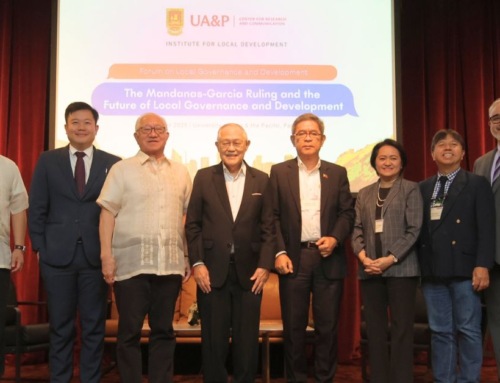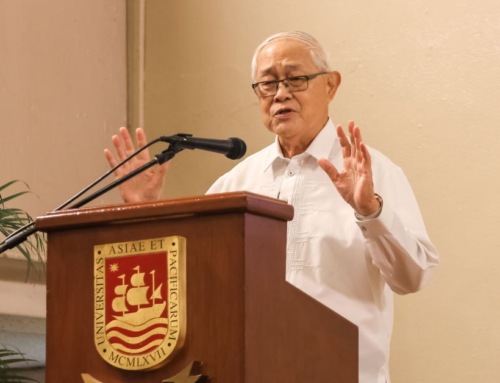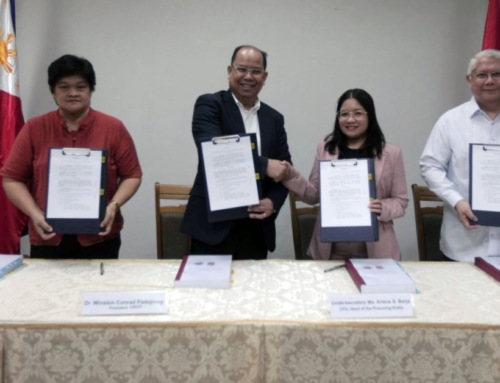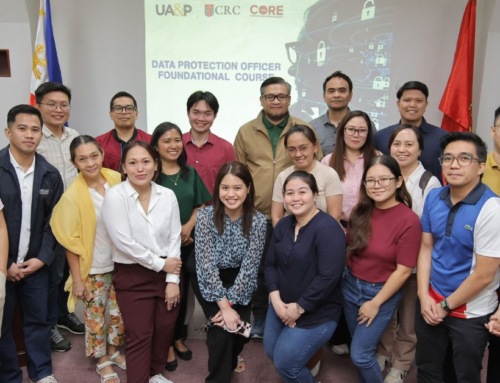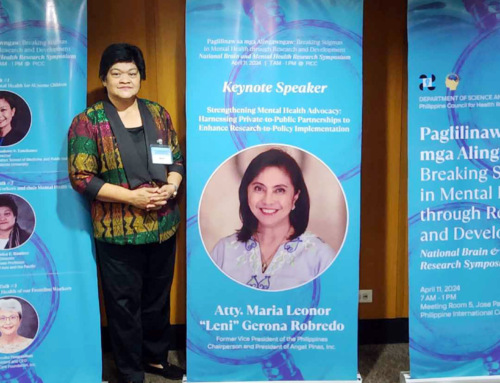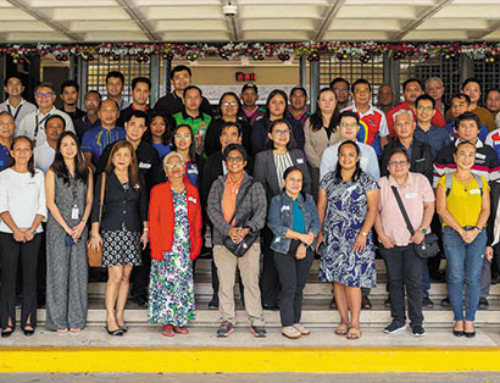This post was last edited on 2015-12-22 09:08:18
UA&P held its 20th University Day Lecture on August 14, 2015 at the Li Seng Giap Auditorium. This year’s speaker, Associate Professor Dr. Theta C. Ponce of the School of Sciences and Engineering, gave a presentation entitled, “Integral Ecology = Environmental Ecology + Divine Ecology.” She reiterated Pope Francis’ call in his encyclical Laudato Si that authentic spirituality includes a proper valuation of, and relation to, the human person as well as the rest of creation. Dr. Ponce’s lecture comprised three parts: a summary of Laudato Si; a discussion of “integral ecology,” tackling both its environmental and spiritual aspects; and a conclusion on the practical consequences of knowing integral ecology. Laudato Si aimed to motivate persons of good will to reverse environmental degradation, with recommendations from Pope Francis: through ending armed conflict; preventing social conflicts through social justice; shifting to sustainable lifestyles; improving government monitoring of environmental resources; and reiterating a need for conversion towards ecologically harmonious living.
[ Photo: crcarch201512220908a]
From Laudato Si, Dr. Ponce moved to a discussion of integral ecology. While ecology per se is defined as the study of “interactions between living things and the environment”, integral ecology uses a holistic perspective of reality, looking not only at the natural environment, but also at “Divine Ecology”—where the living God interacts with human beings and the rest of creation. Dr. Ponce cited as an example the law of conservation of mass and energy in physics (“the total amount of mass in an isolated system remains the same, in spite of physical or chemical changes; energy cannot be created or destroyed, only changed from one form to another—with matter considered as a concentrated form of energy”). While this is an expression in the natural realm, its spiritual and higher counterpart is God’s intention to redeem and sanctify humanity, followed by the rest of creation. The practical consequences of integral ecology include developing gratitude; cultivating sustainable lifestyles; improving material efficiency in production while prioritizing and increasing spiritual resources; continuing education on integral ecology; and developing greater harmony with God and creation. Dr. Ponce emphasized that socioeconomic motivations are not sufficient to bring about the behavioral changes needed for sustainable lifestyles at a global level; more importantly, moral and religious motivations, as well as reliance on Divine grace are needed.
[ Photo: crcarch201512220908b]
The lecture ended with the first University Day Closing Remarks delivered by University President Dr. Winston Padojinog. From Dr. Ponce’s talk and from Laudato Si, he emphasized how the manner with which we treat each other also defines the manner we treat nature. Noting how a “throwaway culture” is related to a devaluation of human life and of the marginalized, Dr. Padojinog reminded the University community of its mission to promote in society a clearer understanding of the human person. As a consequence of this position, he cited the University’s support for corporate sustainability initiatives and for the “triple bottom line” approach, which takes into consideration not only profit, but also people and the planet. Dr. Padojinog concluded the University Day Lecture with a call for the University community to rekindle its fervor: Everyone who comes into contact with the University should get to know and feel how we live our mission here, and how we relate to one another. . . . Let us open to the public regular talks on culture, professional deportment, and spiritual and material formation . . . Let us cast our nets wider and deeper, and even bring our functions of teaching, research and development outside the walls of this university, outside the Philippines, and as our name suggests, to the Asia-Pacific.

